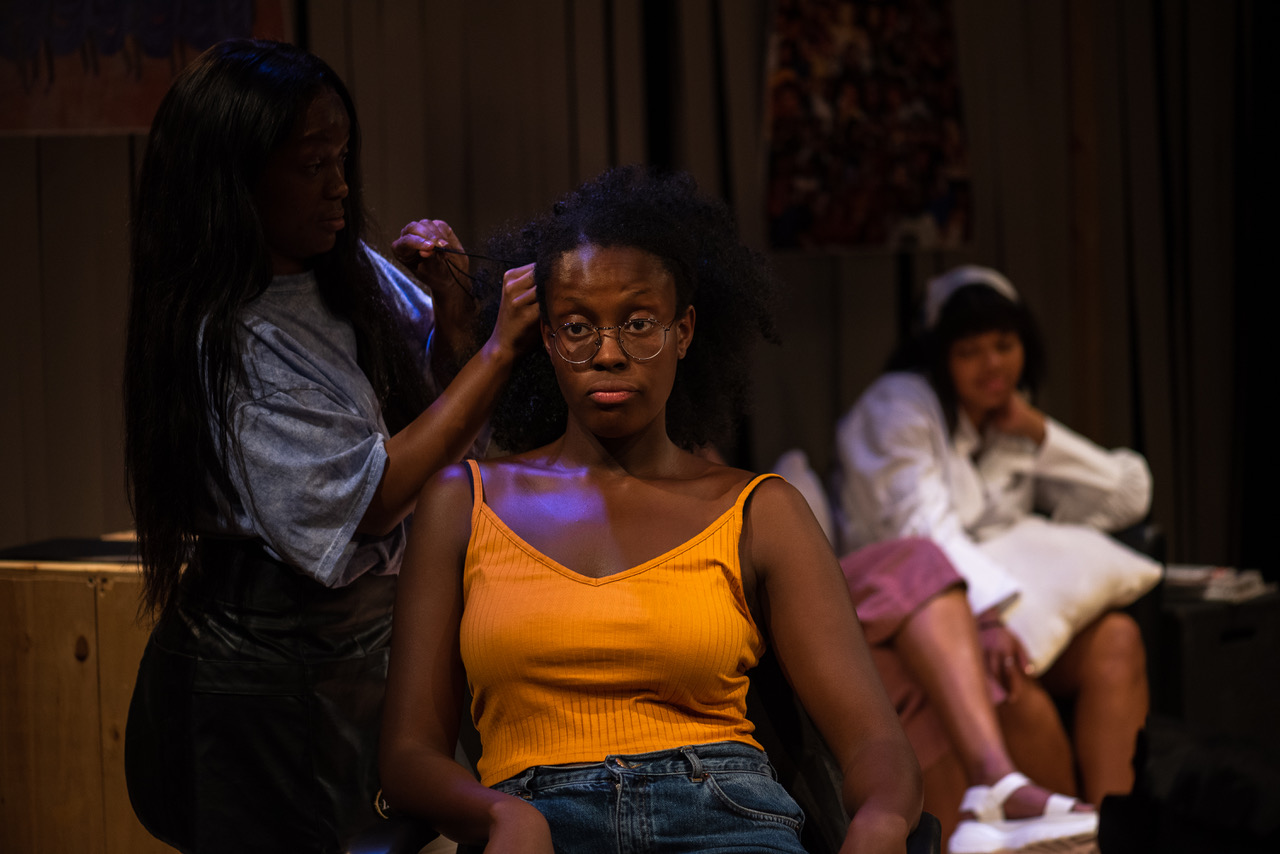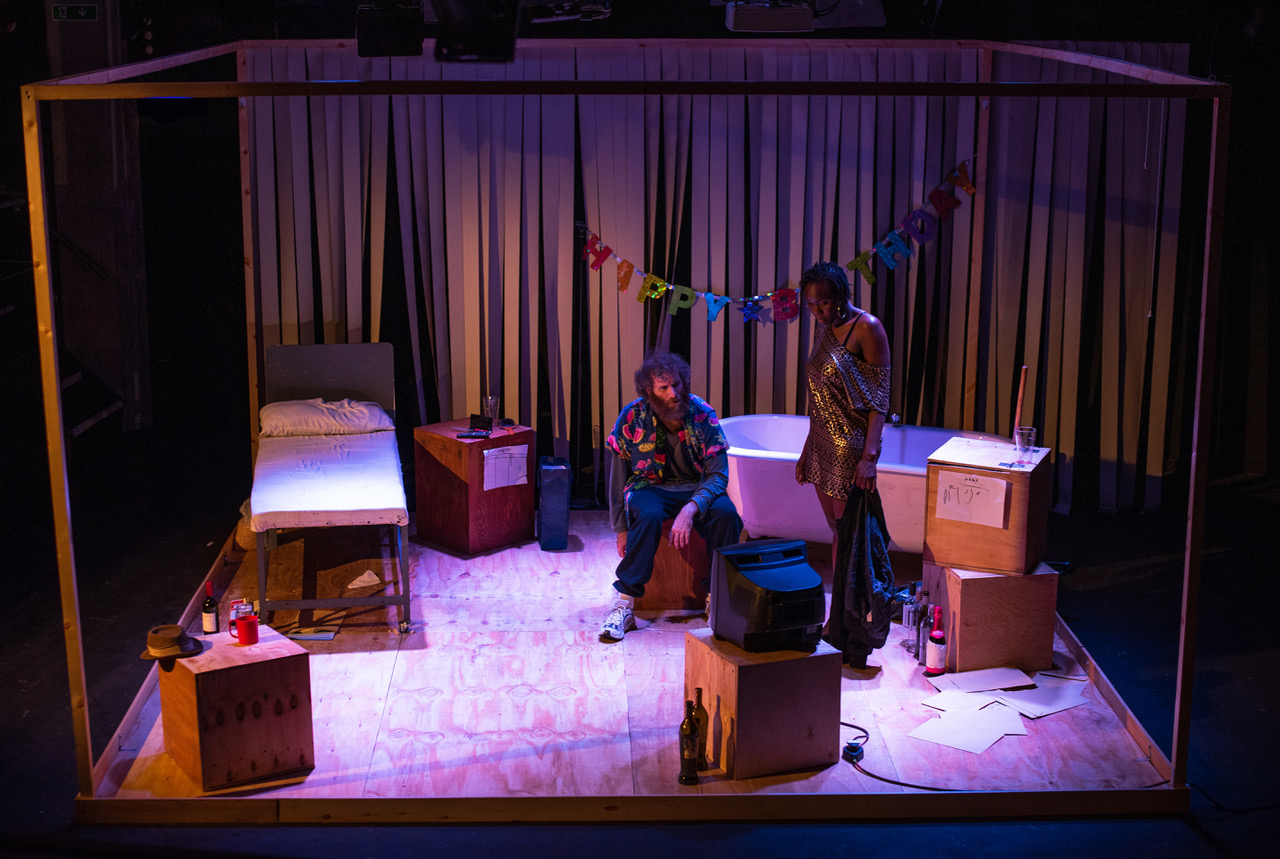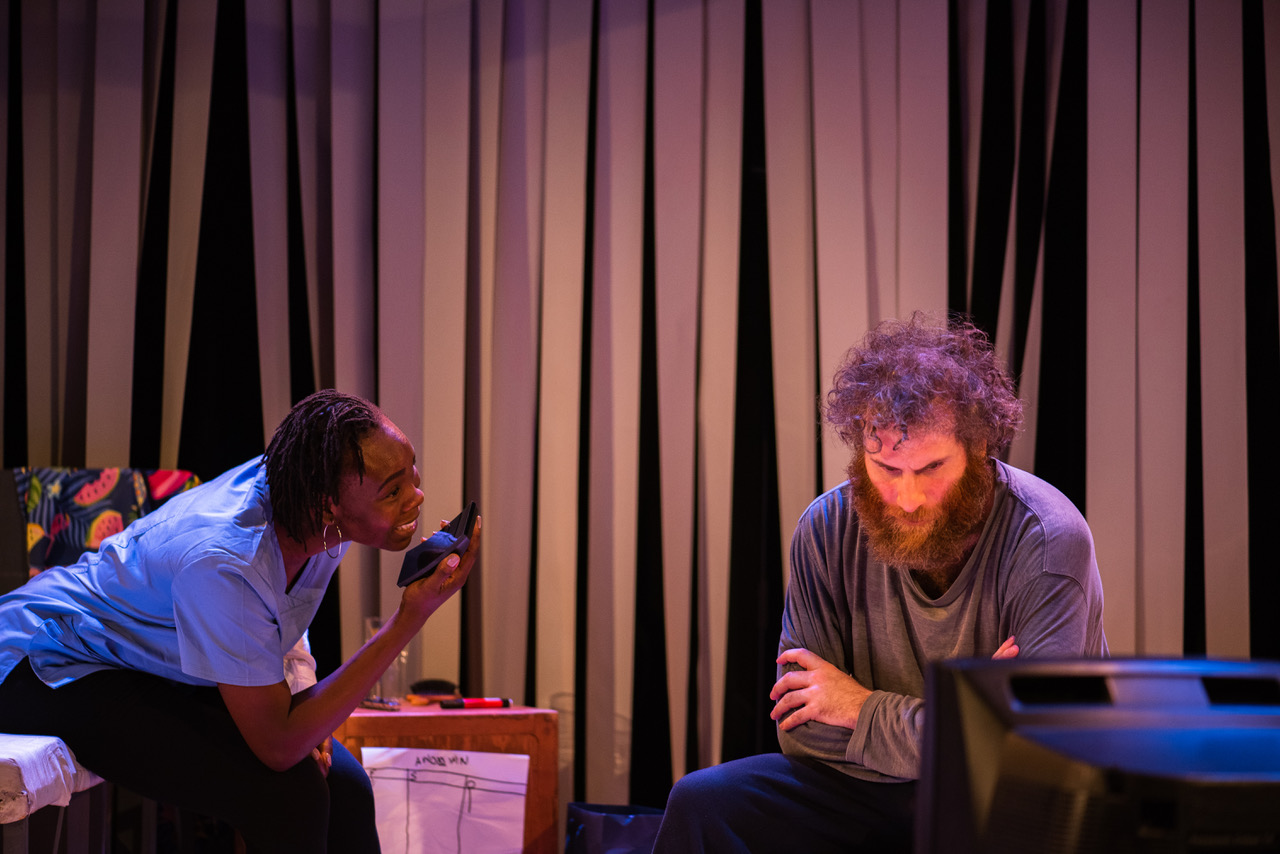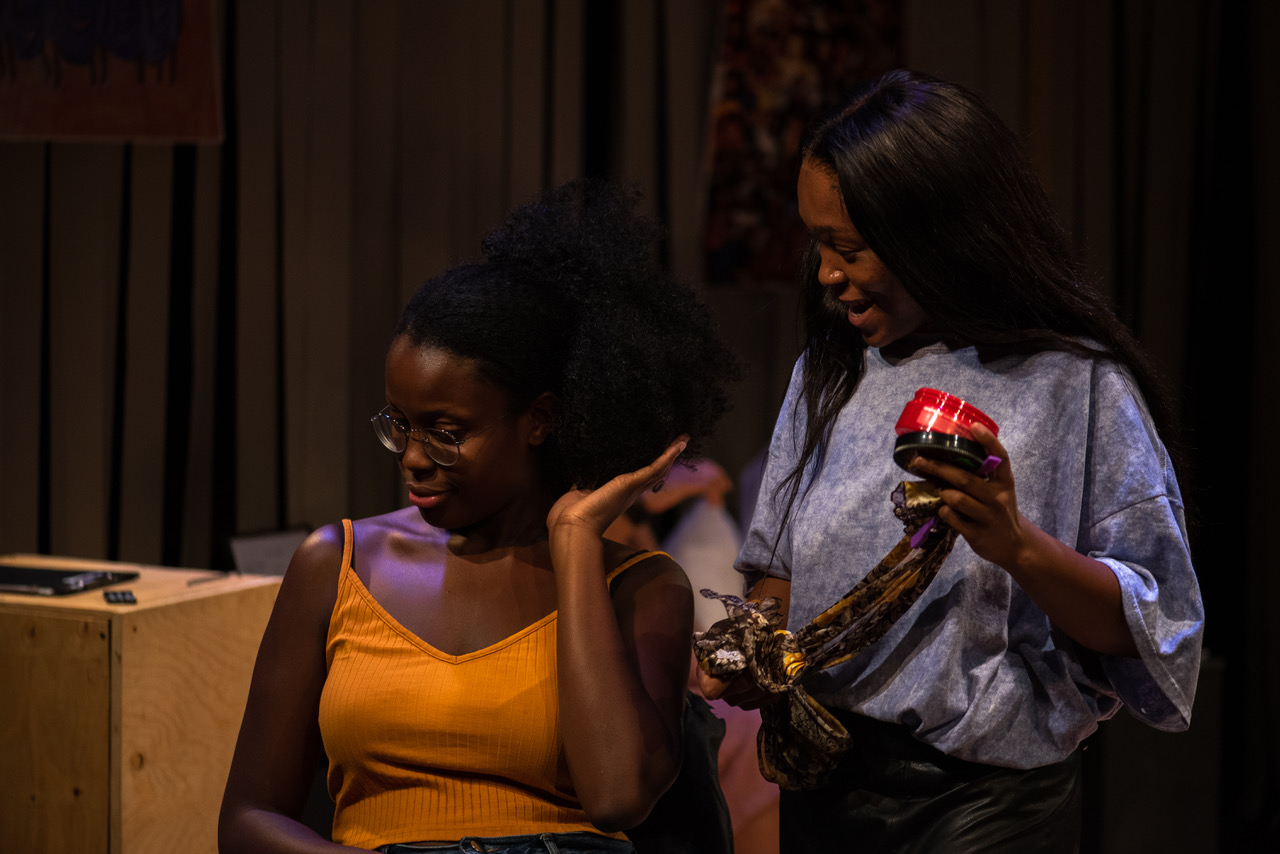This is Black is the latest installment from Bunker Theatres current season. What makes this series special is the platform Bunker Theatres has provided for young black writers to showcase and share their stories to the world – other theatres take note!
Every topic they addressed was valid and true and resonated deep within me.
I watched two plays from this series: Teleportation by Ronke Adékoluejo and Pyneapple by Chantelle Alle and Melissa Saint. Both plays were different but similar in the topics they covered.
The first play in the double bill was Pyneapple.
Pyneapple is set in a local hairdresser, where four young ladies (Maya – Amba Rose Mendy, Raye – Elise Palmer, Erycah – Melissa Saint and Lauryn – Odera Ndujiuba) work, visit and hang out. Whilst each character has their own individual story, they all face racial discrimination. From colourism to hair texture, race to sexuality; Pyneapple explores everything that some young black women go through. These themes cause tensions to rise amongst the four young women, threatening to destroy their fragile relationships, at a time when the hairdressers are at risk of being lost due to increasing rent. Forced to put their opinions aside they have to team up and fight to stop their shop from being closed down.
As a young black female, I could identify with most of the topics explored in the play. Like many black women, hair is a huge part of my life and identity. The play touches on the minefield women face with hair, with one character struggling to find the correct hairstyles for work whilst another won’t let her boyfriend see her without extensions.
Growing up, I was always conscious of my hair and aware of how the hair choices I made could change people’s perceptions of me. As I result I ended up trying many hairstyles from having my hair pulled into cornrows, being burnt by a hot comb and relaxers and eventually going natural. My grandma always said your hair is your crown and glory but that glory is usually associated with laid edges, defined curls, straight tresses and endless volume, rather than the natural hair many are born with, it’s no wonder hair is such a challenge for many. This struggle can be seen in statistics that show the UK black hair industry is worth an estimated £88 million, with black women spending three times more than white women on hair care on average. – Gal-dem.com
Pyneapple also addressed valid points on colourism, by highlighting that black women come in so many beautiful shades, yet the mainstream media stop at certain shades of brown and leave out the rest – rather than elevate women with a deeper complexion. Every topic they addressed was valid and true and resonated deep within me.
Overall, Pyneapple was witty, funny and honest. The characters were well developed, charming and realistic to watch. However, I do think the play needs some work, the ending felt a little forced and although every topic raised was crucial, they discussed it for too long which at times made the importance of their point become lost. Despite this, I really enjoyed watching 4 talented black women on stage telling their stories and really hope this will encourage people to understand and appreciate black women more.
The second play in the double bill was Teleportation.
Teleportation: I found this play extremely truthful, emotional, funny and yet serious
Set in a room laden with rubbish we watch an ex-army /convict (Gary – Lee Ravitz) struggle to survive inside his own body. Unable to physically leave his house he is restricted to his bed due to his disability and must rely on the support of a carer (Anuyin – Antonia Layiwola). Gary is a middle aged white man, whilst Anuyin is a young black woman. Although Anuyin is with Gary on a daily basis, cleaning and caring for him, it’s clear he isn’t keen on Anuyin due to the colour of her skin. As the play develops, we start to watch their relationship blossom, as they open up about their life experiences. We learn that Anuyin is struggling to support her nephew whilst Gary is struggling to overcome his past. As these two characters slowly start to appreciate each other, Gary opens up about his past and explains why he was in prison. We learn that his past was an evil one riddled with violence, racism and hate that coincidentally is deeply linked to Anuyin’s own background.
Perhaps the most powerful aspect of the play was its exploration of the relationship that is formed between Gary and Anuyin, one that highlights how impactful carers (especially those from ethnic minority backgrounds) are to the UK.
According to BASW, half a million Black Asian Minority Ethnic (BAME) carers save the UK a staggering £7.9 billion a year, which is 41 per cent of local authority total spend on social care. The research shows that BAME carers provide more care proportionately than white British carers, putting them at greater risk of ill-health, loss of paid employment and social exclusion. With such high figures, it’s extremely important to represent carers on the stage, they make such a huge impact to all those who need their help and need to be respected for their dedication and hard work.
I found this play extremely truthful, emotional, funny and yet serious. I loved how wise Anuyin was in her conversations with Gary, proving that she couldn’t be placed in the rigid box society loves to place black women in, by proving that she is more than a colour.
The dialogue between the characters was strong, impactful and engaging with brilliant acting from both the characters, however the play dragged at times and the twist at the end detracted rather than adding to the play as it was unrealistic. Overall, I found the play heart-warming yet heart-breaking. I felt that it showcased topics that are never spoken about and really allowed me to appreciate and respect carers more than ever before.
I appreciated both plays but wish they were not back to back as it made me lose concentration with the second play. They both deserve their own individual day to shine and open the audiences’ eyes. I do think the endings for both plays were rushed and unnecessarily dramatic. However, for such young writers, they should all be proud of their work. Overall, I think it is worth giving these plays a chance to change your outlook on certain topics.




























